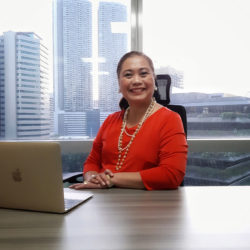I started my home school journey with nothing but a vision of a busy school table with mountains of workbooks, seat-works, projects, and tests for my children. I thought homeschooling was just a matter of buying the most popular curriculum, diligently planning ahead, and implementing lessons on a daily basis. However, on my first official day of homeschooling, I felt that I needed more than just a lesson plan to guide me.
The guide I had was full of activities that seemed to just fill up time and did not seem to necessarily educate the child. For the most part, it felt contrived and, personally, I was uncomfortable with that. And so, I took the courage to toss out the lesson plan, and instead set myself on a search for something better. Something that would make more sense to me. Something in the right.
After going through a long aisle or two of books on education and homeschooling in a library back in California, I stumbled upon Charlotte Mason. I read, and felt right at home with what she presented. Since then, it has slowly changed me and our family’s atmosphere of learning, our view on discipline, and our appreciation and need for a living education.

Charlotte Mason (1842-1923) was a British educator who developed a unique approach to change the educational climate of her day. She was a teacher for more than a decade at Davison School and was soon invited to train and give lectures at a Teacher Training College in Chicester, England. She eventually formed the House of Education, a training school for governesses, parents, and teachers who worked closely with children. She wrote numerous books on education and established a number of schools in England addressing the needs of all children from infancy through college. Her method was embraced in thousands of British Schools in the late 19th and early 20th centuries. Unfortunately, the philosophy waned after World War II with the advent of a national curriculum for all state schools in the UK, and only a number of her schools survived.
But in recent years, there has been a resurgence in Charlotte Mason’s method and philosophy in learning. The principles and practices have been reintroduced to educators and home-school families, and a growing number of Charlotte Mason schools are being established all over the world.


One will notice how a lot of these CM students are spending a lot of time outdoors studying plants and animals, diligently taking notes on their nature journals. Science to them is fascinating, and not a mere set of facts to memorize. A lot of them are not only reading Shakespeare, but more importantly, they are understanding the plays quite well. These students are exposed to a variety of books that my generation was only exposed to when we got to college, or never even read at all. Rather than through textbooks, they are learning history through primary books, making the past come to life. Their little hands are carefully sewing projects and other handicrafts with pleasure and purpose. They are exposed to a multitude of great men and women from biographies, which widens even further their understanding and appreciation for historical events. We can see children reading and loving books, and imbibing more ideas through their experiences in narration. Their sense of wonder from the early years is carried on because of the banquet of ideas that nourish their mind, heart, and character. They are eager to know more, and naturally, love more.

Charlotte Mason believed deeply that education should feed the spirit and soul as it trains the mind. She outlined her methodology in a series of six scholarly books on education. She developed a unifying philosophy and it is characterized by some of these tenets.
A Liberal Education
She believed that children deserve a generous and a rich education that is presented as a banquet of ideas ready to be taken in by children. This implies an extensive exposure to the humanities as well as a strong foundation in arithmetic, reading, writing, science, and history.
Living Books
Miss Mason preferred “living books”over textbooks. Textbooks are usually filled with facts and information at the expense of human emotion. From what I have gathered and my own experience, textbooks have a way of deadening the imagination of a child. On the other hand, Charlotte Mason advocated primary sources and books containing living ideas from great minds. She believed that when children grow up hearing the best ideas put forth in the best possible language, they model their thinking and their writing after these. Instead of presenting dry facts, living books are written in conversational, literary language.
Narration
Narration is the assimilation of information and retelling it. After reading or listening to a passage from a living book, the child is asked to tell or, if older, write in his own words what he remembers from the reading. This gives the student the space to think through the writer’s ideas and make them his own. Narration develops the power of self-expression and assists the child to use his own mind and form his own judgment. This simple practice strengthens and challenges all the powers of the mind: attending, remembering, visualizing, comprehending, synthesizing, and articulating.
Short Lessons
Short lessons enable children to develop the habit of paying attention and preventing the usual habit of dawdling over lessons. Short lessons encourages children to give all their attention and thus help build the habit of focus and excellence with each task.
The Great Outdoors
She believes in giving children regular opportunities to be in touch with nature and the outdoors to cultivate, not just a sense of joy, but the habit of attention that is strengthened through nature study and observation.
Humanities
She believes that exposure to great artists, composers, and musicians help children develop a taste for what is good and beautiful, teaches history and worldview, and expands their view of creativity.
Christian Worldview
A Christian worldview is interwoven into the very fabric of a Charlotte Mason education. Charlotte Mason believed that there is no separation between the intellectual and ‘spiritual’ life of children, but teach them that the Divine Spirit has constant access to their spirits, and is their Continual Helper in all the interests, duties and joys of life.

“What is an Idea? A living thing of the mind…
We say of an idea that it strikes us, impresses us,
seizes us, takes possession of us, rules us…
To excite this ‘appetency toward something’ –
toward things lovely, honest, and of good report,
is the earliest and most important ministry of the educator.”
– Charlotte Mason
When I was about to start homeschooling 10 years ago, I wondered if there was a way of learning that is joyful yet profound, gentle yet rich. I wondered if there was a way for children to love learning for learning’s sake and not just for grades nor for the applause. Is it possible for the sense of wonder of a child to be strengthened and sustained as they grow into adults?
I am truly grateful to have “met” Charlotte Mason in the aisles of a library back when I was still a young mother. She has offered me a different way of teaching and learning that has profoundly changed my family’s way of life.

Gina Guerrero-Roldan is a homeschooling mother of 4. She has been using Charlotte Mason’s method to educate her four children in what is called a “Feast of Learning.” Her passion and commitment for a “living” education led her to start Our Living Learning where she has been sharing her CM knowledge and experience through stories and classes for both children and parents – all with the goal of immersing children in their need for Truth, Goodness, and Beauty.
She, along with her OLL team, continues to assist the growing CM community by providing Living Books and other resources at their online shop. They also offer DepEd accreditation support and homeschool accountability through Living Learning Homeschool, a homeschool provider specifically catering to families who use the Charlotte Mason Method.
There are three upcoming CM workshops for parents on October 12 at UP Diliman. These are Charlotte Mason: The Early Years, Narration: The Act of Knowing, and CM Language Arts. Details and registration at OurLivingLearning.com/Parents




